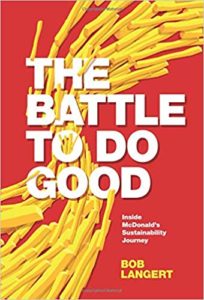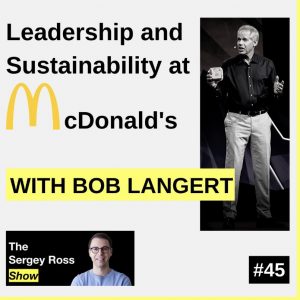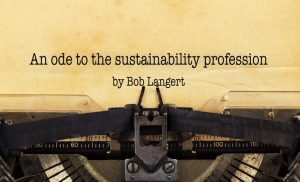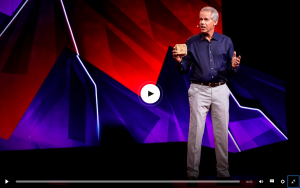Park Howell is the very best communicator, so I was thrilled to be interviewed by him. And I love the topic. Why can’t we get along better? Why is there so much polarization? Park digs deep. I hope you enjoy our discussion.
If you’re a leader of a purpose-driven brand, you’re seeking ways to advance your positive social impact further faster. But even when you are trying to do good for the world, there may be some who criticize the cause. So how do you overcome that? Learn how you can leverage storytelling to create allies out of adversaries and ultimately propel your mission forward.

Bob Langert is a prominent executive, published author, and columnist for the prestigious GreenBiz. For many years, he worked for a global brand that was long viewed by the public as a hero – but suddenly found itself perceived as the villain. This condemnation from the public created a need for change within the brand. Therefore, Bob spent the next 27 years helping to launch, manage and grow McDonald’s social and environmental efforts.
In order to be credible in sustainability, you have to talk about the problems and the barriers your story faces, along with the successes; you have to be very honest and straightforward. ~ Bob Langert
However, many marketers and brand communicators shy away from this because they fear what the opposition will do with the information. But that apprehension is often one of the greatest barriers to the mission’s success.
Conflict is a really good thing because it challenges your thinking and pushes you to keep moving forward. ~Bob Langert
So instead of avoiding individuals and groups that speak out against your work, be open to learning from them. By respecting your critics and asking about their viewpoints, you are able to see missed opportunities in your work, and in turn, you create a space where they are often more willing and open to listening to and helping you.
Sometimes you have to acknowledge that you are not the expert on the specific topic and acknowledge that the ‘adversaries’ may actually be experts and can help you do better in this area for your organization. ~Bob Langert
Discussed in this Episode
- The 3 P’s and how to utilize them to advance your mission
- Why there is more than one way you should perceive the “villains” of your story
- The importance of being open to and receptive of viewpoints that differ from your own
- The importance of talking about what you and/or your organization is doing in regards to social-cause work
#220: How to Turn Adversaries Into Allies With Your Storytelling




